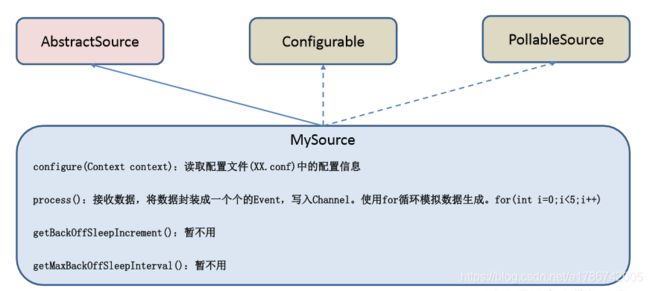- Flume与Couchbase集成原理与实例
AI大模型应用之禅
DeepSeekR1&AI大模型与大数据计算科学神经计算深度学习神经网络大数据人工智能大型语言模型AIAGILLMJavaPython架构设计AgentRPA
Flume与Couchbase集成原理与实例作者:禅与计算机程序设计艺术/ZenandtheArtofComputerProgramming1.背景介绍1.1问题的由来随着大数据时代的到来,企业对数据存储和处理的效率要求越来越高。在数据采集、存储、处理和分析的各个环节,都需要高效、可靠的技术支持。Flume和Couchbase正是这样两种优秀的工具,前者擅长于数据采集和传输,后者擅长于键值存储和文
- Hadoop相关面试题
努力的搬砖人.
java面试hadoop
以下是150道Hadoop面试题及其详细回答,涵盖了Hadoop的基础知识、HDFS、MapReduce、YARN、HBase、Hive、Sqoop、Flume、ZooKeeper等多个方面,每道题目都尽量详细且简单易懂:Hadoop基础概念类1.什么是Hadoop?Hadoop是一个由Apache基金会开发的开源分布式计算框架,主要用于处理和存储大规模数据集。它提供了高容错性和高扩展性的分布式存
- Flume详解——介绍、部署与使用
克里斯蒂亚诺罗纳尔多阿维罗
flume大数据分布式
1.Flume简介ApacheFlume是一个专门用于高效地收集、聚合、传输大量日志数据的分布式、可靠的系统。它特别擅长将数据从各种数据源(如日志文件、消息队列等)传输到HDFS、HBase、Kafka等大数据存储系统。特点:可扩展:支持大规模数据传输,灵活扩展容错性:支持数据恢复和失败重试,确保数据不丢失多种数据源:支持日志文件、网络数据、HTTP请求、消息队列等多种来源流式处理:数据边收集边传
- 大数据学习(67)- Flume、Sqoop、Kafka、DataX对比
viperrrrrrr
大数据学习flumekafkasqoopdatax
大数据学习系列专栏:哲学语录:用力所能及,改变世界。如果觉得博主的文章还不错的话,请点赞+收藏⭐️+留言支持一下博主哦工具主要作用数据流向实时性数据源/目标应用场景Flume实时日志采集与传输从数据源到存储系统实时日志文件、网络流量等→HDFS、HBase、Kafka等日志收集、实时监控、实时分析Sqoop关系型数据库与Hadoop间数据同步关系型数据库→Hadoop生态系统(HDFS、Hive、
- Flume-HBase-Kafka
正在緩沖҉99%
kafkaFlumeHBase大数据
Flume-HBase-Kafka一、各自介绍1.Flume简介和特征2.HBase简介和特征3.Kafka简介和特征二、通过Flume读取日志文件写入到Kafka中在写入HBase各自作用一、各自介绍1.Flume简介和特征一、简介Flume是一个分布式、可靠、和高可用的海量日志聚合的系统,支持在系统中定制各类数据发送方,用于收集数据;同时,Flume提供对数据进行简单处理,并写到各种数据接受方
- 大数据环境(单机版) Flume传输数据到Kafka
凡许真
大数据flumekafka数据采集
文章目录前言一、准备二、安装三、配置环境变量四、修改配置4.1、kafka配置4.2、Flume配置五、启动程序5.1、启动zk5.2、启动kafka5.3、启动flume六、测试6.1、启动一个kafka终端,用来消费消息6.2、写入日志其他前言flume监控指定目录,传输数据到kafka一、准备flume-1.10.1kafka_2.11-2.4.1zookeeper-3.4.13二、安装使用
- Kafka系列之:记录一次源头数据库刷数据,造成数据丢失的原因
快乐骑行^_^
KafkaKafka系列记录一次源头数据库刷数据造成数据丢失的原因
Kafka系列之:记录一次源头数据库刷数据,造成数据丢失的原因一、背景二、查看topic日志信息三、结论四、解决方法一、背景源头数据库在很短的时间内刷了大量的数据,部分数据在hdfs丢失了理论上debezium数据采集不会丢失,就需要排查数据链路某个节点是否有数据丢失。数据链路是:debezium——kafka——flume——hdfs根据经验定位数据在kafka侧丢失,下一面进一步确认是否数据在
- 强大的ETL利器—DataFlow3.0
lixiang2114
数据分析etlflumesqoop数据库数据仓库
产品开发背景DataFlow是基于应用数据流程的一套分布式ETL系统服务组件,其前身是LogCollector2.0日志系统框架,自LogCollector3.0版本开始正式更名为DataFlow3.0。目前常用的ETL工具Flume、LogStash、Kettle、Sqoop等也可以完成数据的采集、传输、转换和存储;但这些工具都不具备事务一致性。比如Flume工具仅能应用到通信质量无障碍的局域网
- 大数据-257 离线数仓 - 数据质量监控 监控方法 Griffin架构
m0_74823705
面试学习路线阿里巴巴大数据架构
点一下关注吧!!!非常感谢!!持续更新!!!Java篇开始了!目前开始更新MyBatis,一起深入浅出!目前已经更新到了:Hadoop(已更完)HDFS(已更完)MapReduce(已更完)Hive(已更完)Flume(已更完)Sqoop(已更完)Zookeeper(已更完)HBase(已更完)Redis(已更完)Kafka(已更完)Spark(已更完)Flink(已更完)ClickHouse(已
- 数据仓库与数据挖掘记录 三
匆匆整棹还
数据挖掘
数据仓库的数据存储和处理数据的ETL过程数据ETL是用来实现异构数据源的数据集成,即完成数据的抓取/抽取、清洗、转换.加载与索引等数据调和工作,如图2.2所示。1)数据提取(Extract)从多个数据源中获取原始数据(如数据库、日志文件、API、云存储等)。数据源可能是结构化(如MySQL)、半结构化(如JSON)、非结构化(如文本)。关键技术:SQL查询、Web爬虫、日志采集工具(如Flume)
- 【大数据技术】搭建完全分布式高可用大数据集群(Flume)
Want595
Python大数据采集与分析大数据分布式flume
搭建完全分布式高可用大数据集群(Flume)apache-flume-1.11.0-bin.tar.gz注:请在阅读本篇文章前,将以上资源下载下来。写在前面本文主要介绍搭建完全分布式高可用集群Flume的详细步骤。注意:统一约定将软件安装包存放于虚拟机的/software目录下,软件安装至/opt目录下。安装Flume用finalshell将压缩包上传到虚拟机master的/software目录下
- 计算机毕业设计hadoop+spark+hive新能源汽车数据分析可视化大屏 汽车推荐系统 新能源汽车推荐系统 汽车爬虫 汽车大数据 机器学习 大数据毕业设计 深度学习 知识图谱 人工智能
qq+593186283
hadoop大数据人工智能
(1)设计目的本次设计一个基于Hive的新能源汽车数据仓管理系统。企业管理员登录系统后可以在汽车保养时,根据这些汽车内置传感器传回的数据分析其故障原因,以便维修人员更加及时准确处理相关的故障问题。或者对这些数据分析之后向车主进行预警提示车主注意保养汽车,以提高汽车行驶的安全系数。(2)设计要求利用Flume进行分布式的日志数据采集,Kafka实现高吞吐量的数据传输,DateX进行数据清洗、转换和整
- python消费kafka数据nginx日志实时_基于nginx+flume+kafka+mongodb实现埋点数据采集
weixin_39534208
名词解释埋点其实就是用于记录用户在页面的一些操作行为。例如,用户访问页面(PV,PageViews)、访问页面用户数量(UV,UserViews)、页面停留、按钮点击、文件下载等,这些都属于用户的操作行为。开发背景我司之前在处理埋点数据采集时,模式很简单,当用户操作页面控件时,前端监听到操作事件,并根据上下文环境,将事件相关的数据通过接口调用发送至埋点数据采集服务(简称ets服务),ets服务对数
- 大数据-267 实时数仓 - ODS Lambda架构 Kappa架构 核心思想
m0_74823336
面试学习路线阿里巴巴大数据架构
点一下关注吧!!!非常感谢!!持续更新!!!Java篇开始了!MyBatis更新完毕目前开始更新Spring,一起深入浅出!目前已经更新到了:Hadoop(已更完)HDFS(已更完)MapReduce(已更完)Hive(已更完)Flume(已更完)Sqoop(已更完)Zookeeper(已更完)HBase(已更完)Redis(已更完)Kafka(已更完)Spark(已更完)Flink(已更完)Cl
- nginx+flume网络流量日志实时数据分析实战_日志数据分析(1)
2401_84182578
程序员nginxflume数据分析
得到visits模型hadoopjar/export/data/mapreduce/web_log.jarcn.itcast.bigdata.weblog.clickstream.ClickStreamVisit网络日志数据分析-数据加载对于日志数据的分析,Hive也分为三层:ods层、dw层、app层创建数据库createdatabaseifnotexistsweb_log_ods;create
- 【大数据入门核心技术-Flume】(二)Flume安装部署
forest_long
大数据技术入门到21天通关bigdatahadoop大数据hbaseflume
目录一、准备工作1、基本Hadoop环境安装2、下载安装包二、安装1、解压2、修改环境变量3、修改并配置flume-env.sh文件4、验证是否安装成功一、准备工作1、基本Hadoop环境安装参考Hadoop安装【大数据入门核心技术-Hadoop】(五)Hadoop3.2.1非高可用集群搭建【大数据入门核心技术-Hadoop】(六)Hadoop3.2.1高可用集群搭建2、下载安装包官方网址:
- java.io.FileNotFoundException: /tmp/log/flume-ng/flume.log (Permission denied)
海洋 之心
Flume问题解决Hadoop问题解决javaflume开发语言zookeeper大数据
文章目录问题描述:原因分析:解决方案:问题描述:使用Flume将本地文件监控上传到HDFS上时出现log4j:ERRORsetFile(null,true)callfailed.java.io.FileNotFoundException:/tmp/log/flume-ng/flume.log(Permissiondenied)log4j:ERRORsetFile(null,true)callfai
- flume系列之:消费Kafka集群Topic报错java.io.IOException: Can‘t resolve address: data03:9092
快乐骑行^_^
flumeflume系列消费Kafka集群TopicOExceptionresolveaddress
flume系列之:消费Kafka集群Topic报错java.io.IOException:Can'tresolveaddress:data03:9092Causedby:java.nio.channels.UnresolvedAddressException一、flume消费Kafka集群Topic报错二、报错原因三、解决方法一、flume消费Kafka集群Topic报错21Sep202214:5
- 基于Spark的实时计算服务的流程架构
小小搬运工40
spark大数据
基于Spark的实时计算服务的流程架构通常涉及多个组件和步骤,从数据采集到数据处理,再到结果输出和监控。以下是一个典型的基于Spark的实时计算服务的流程架构:1.数据源数据源是实时计算服务的起点,常见的数据源包括:消息队列:如Kafka、RabbitMQ、AmazonKinesis等。日志系统:如Flume、Logstash等。传感器数据:物联网设备产生的数据流。数据库变更数据捕获(CDC):如
- 大数据开发的底层逻辑是什么?
瑰茵
大数据
大数据开发的底层逻辑主要围绕数据的生命周期进行,包括数据的采集、存储、处理、分析和可视化等环节。以下是大数据开发的一些关键底层逻辑:数据采集:目的:从不同的数据源(如日志文件、数据库、传感器等)收集数据。方法:使用数据采集工具(如ApacheFlume、ApacheKafka、ApacheSqoop)来捕获和传输数据。数据存储:目的:将收集到的数据存储在可靠且可扩展的存储系统中。方法:使用分布式文
- flume+ Elasticsearch +kibana环境搭建及讲解
pincharensheng
大数据flumekibanaelasticsearch分布式
1、软件介绍1.1、flume1.1.1、flume介绍1)flume概念1、flume是一个分布式的日志收集系统,具有高可靠、高可用、事务管理、失败重启等功能。数据处理速度快,完全可以用于生产环境;2、flume的核心是agent。agent是一个java进程,运行在日志收集端,通过agent接收日志,然后暂存起来,再发送到目的地;3、agent里面包含3个核心组件:source、channel
- Hive数据仓库中的数据导出到MySQL的数据表不成功
sin2201
出错问题数据仓库hivemysql
可能的原因:(1)没有下载flume和sqoop(2)权限问题:因为MySQL数据库拒绝了root用户从hadoop3主机的连接请求,root用户没有从hadoop3主机进行连接的权限解决:通过MySQL的授权命令来授予权限mysql>GRANTALLPRIVILEGESONsqoop_weblog.*TO'root'@'hadoop3'IDENTIFIEDBY'2020';QueryOK,0ro
- python消费kafka数据nginx日志实时_Openresty+Lua+Kafka实现日志实时采集
weixin_39997311
简介在很多数据采集场景下,Flume作为一个高性能采集日志的工具,相信大家都知道它。许多人想起Flume这个组件能联想到的大多数都是Flume跟Kafka相结合进行日志的采集,这种方案有很多他的优点,比如高性能、高吞吐、数据可靠性等。但是我们如果要求对日志进行实时的采集,这显然不是一个好的解决方案。原因如下:就目前来说,Flume能支持实时监控一个目录的数据文件,一旦对某个目录的文件采集完成,就会
- openresty+lua实现实时写kafka
sky@梦幻未来
大数据openrestynginxopenrestylua
一.背景在使用openresty+lua+nginx+flume,通过定时切分日志发送kafka的方式无法满足实时性的情况下,小编开始研究openresty+lua+nginx+kafka实时写kafka,从而达到数据实时性,和高性能保证。二.实现1.openresty安装nginx,以及lua的使用请看博主上一篇博客https://blog.csdn.net/qq_29497387/articl
- SeaTunnel 与 DataX 、Sqoop、Flume、Flink CDC 对比
不二人生
#数据集成工具SeaTunnel
文章目录SeaTunnel与DataX、Sqoop、Flume、FlinkCDC对比同类产品横向对比2.1、高可用、健壮的容错机制2.2、部署难度和运行模式2.3、支持的数据源丰富度2.4、内存资源占用2.5、数据库连接占用2.6、自动建表2.7、整库同步2.8、断点续传2.9、多引擎支持2.10、数据转换算子2.11、性能2.12、离线同步2.13、增量同步&实时同步2.14、CDC同步2.15
- flume系列之:flume落cos
快乐骑行^_^
日常分享专栏flume系列
flume系列之:flume落cos一、参考文章二、安装cosjar包三、添加hadoop-cos的相关配置四、flume环境添加hadoop类路径五、使用cos路径六、启动/重启flume一、参考文章Kafka数据通过Flume存储到HDFS或COSflumetocos使用指南二、安装cosjar包将对应hadoop版本的hadoop-cos的jar包(hadoop-cos-{hadoop.ve
- Flume 简介01 作用 核心概念 事务机制 安装 配置入门实战
湖中屋
Flumeflume
Flume1.业务系统为什么会产生用户行为日志,怎么产生的用户行文日志:每一次访问的行为(访问、搜索)产生的日志记录用户行为日志的目的:1.商家会精准的给你呈现符合你的个人界面2.商家会给你个人添加用户标签,更加精准的分析埋点等2.flume用来做什么的(采集传输数据的,分布式的,可靠的)ApacheFlume是一个从可以收集例如日志,事件等数据资源,并将这些数量庞大的数据从各项数据资源中集中起来
- 大数据-257 离线数仓 - 数据质量监控 监控方法 Griffin架构
武子康
大数据离线数仓大数据数据仓库java后端hadoophive
点一下关注吧!!!非常感谢!!持续更新!!!Java篇开始了!目前开始更新MyBatis,一起深入浅出!目前已经更新到了:Hadoop(已更完)HDFS(已更完)MapReduce(已更完)Hive(已更完)Flume(已更完)Sqoop(已更完)Zookeeper(已更完)HBase(已更完)Redis(已更完)Kafka(已更完)Spark(已更完)Flink(已更完)ClickHouse(已
- kafka直接对接nginx
Lu_Xiao_Yue
nginxkafka
很多时候我们要对nginx产生的日志进行分析都是通过flume监控nginx产生的日志,通过flume把日志文件发送该kafka,flume作为生产者,但是这种方式的缺点就是可能效率会比较慢,除此之外还可以使用kafka直接对接nginx,nginx作为生产者,把log日志直接对接到kafka的某些分区中,这种方法的效率比较高,但是缺点就是可能会出现数据丢失,可以通过把nginx的日志进行一份给k
- 大数据新视界 --大数据大厂之大数据实战指南:Apache Flume 数据采集的配置与优化秘籍
青云交
大数据新视界数据库ApacheFlume数据采集安装部署配置优化高级功能大数据工具集成
亲爱的朋友们,热烈欢迎你们来到青云交的博客!能与你们在此邂逅,我满心欢喜,深感无比荣幸。在这个瞬息万变的时代,我们每个人都在苦苦追寻一处能让心灵安然栖息的港湾。而我的博客,正是这样一个温暖美好的所在。在这里,你们不仅能够收获既富有趣味又极为实用的内容知识,还可以毫无拘束地畅所欲言,尽情分享自己独特的见解。我真诚地期待着你们的到来,愿我们能在这片小小的天地里共同成长,共同进步。本博客的精华专栏:大数
- jQuery 跨域访问的三种方式 No 'Access-Control-Allow-Origin' header is present on the reque
qiaolevip
每天进步一点点学习永无止境跨域众观千象
XMLHttpRequest cannot load http://v.xxx.com. No 'Access-Control-Allow-Origin' header is present on the requested resource. Origin 'http://localhost:63342' is therefore not allowed access. test.html:1
- mysql 分区查询优化
annan211
java分区优化mysql
分区查询优化
引入分区可以给查询带来一定的优势,但同时也会引入一些bug.
分区最大的优点就是优化器可以根据分区函数来过滤掉一些分区,通过分区过滤可以让查询扫描更少的数据。
所以,对于访问分区表来说,很重要的一点是要在where 条件中带入分区,让优化器过滤掉无需访问的分区。
可以通过查看explain执行计划,是否携带 partitions
- MYSQL存储过程中使用游标
chicony
Mysql存储过程
DELIMITER $$
DROP PROCEDURE IF EXISTS getUserInfo $$
CREATE PROCEDURE getUserInfo(in date_day datetime)-- -- 实例-- 存储过程名为:getUserInfo-- 参数为:date_day日期格式:2008-03-08-- BEGINdecla
- mysql 和 sqlite 区别
Array_06
sqlite
转载:
http://www.cnblogs.com/ygm900/p/3460663.html
mysql 和 sqlite 区别
SQLITE是单机数据库。功能简约,小型化,追求最大磁盘效率
MYSQL是完善的服务器数据库。功能全面,综合化,追求最大并发效率
MYSQL、Sybase、Oracle等这些都是试用于服务器数据量大功能多需要安装,例如网站访问量比较大的。而sq
- pinyin4j使用
oloz
pinyin4j
首先需要pinyin4j的jar包支持;jar包已上传至附件内
方法一:把汉字转换为拼音;例如:编程转换后则为biancheng
/**
* 将汉字转换为全拼
* @param src 你的需要转换的汉字
* @param isUPPERCASE 是否转换为大写的拼音; true:转换为大写;fal
- 微博发送私信
随意而生
微博
在前面文章中说了如和获取登陆时候所需要的cookie,现在只要拿到最后登陆所需要的cookie,然后抓包分析一下微博私信发送界面
http://weibo.com/message/history?uid=****&name=****
可以发现其发送提交的Post请求和其中的数据,
让后用程序模拟发送POST请求中的数据,带着cookie发送到私信的接入口,就可以实现发私信的功能了。
- jsp
香水浓
jsp
JSP初始化
容器载入JSP文件后,它会在为请求提供任何服务前调用jspInit()方法。如果您需要执行自定义的JSP初始化任务,复写jspInit()方法就行了
JSP执行
这一阶段描述了JSP生命周期中一切与请求相关的交互行为,直到被销毁。
当JSP网页完成初始化后
- 在 Windows 上安装 SVN Subversion 服务端
AdyZhang
SVN
在 Windows 上安装 SVN Subversion 服务端2009-09-16高宏伟哈尔滨市道里区通达街291号
最佳阅读效果请访问原地址:http://blog.donews.com/dukejoe/archive/2009/09/16/1560917.aspx
现在的Subversion已经足够稳定,而且已经进入了它的黄金时段。我们看到大量的项目都在使
- android开发中如何使用 alertDialog从listView中删除数据?
aijuans
android
我现在使用listView展示了很多的配置信息,我现在想在点击其中一条的时候填出 alertDialog,点击确认后就删除该条数据,( ArrayAdapter ,ArrayList,listView 全部删除),我知道在 下面的onItemLongClick 方法中 参数 arg2 是选中的序号,但是我不知道如何继续处理下去 1 2 3
- jdk-6u26-linux-x64.bin 安装
baalwolf
linux
1.上传安装文件(jdk-6u26-linux-x64.bin)
2.修改权限
[root@localhost ~]# ls -l /usr/local/jdk-6u26-linux-x64.bin
3.执行安装文件
[root@localhost ~]# cd /usr/local
[root@localhost local]# ./jdk-6u26-linux-x64.bin&nbs
- MongoDB经典面试题集锦
BigBird2012
mongodb
1.什么是NoSQL数据库?NoSQL和RDBMS有什么区别?在哪些情况下使用和不使用NoSQL数据库?
NoSQL是非关系型数据库,NoSQL = Not Only SQL。
关系型数据库采用的结构化的数据,NoSQL采用的是键值对的方式存储数据。
在处理非结构化/半结构化的大数据时;在水平方向上进行扩展时;随时应对动态增加的数据项时可以优先考虑使用NoSQL数据库。
在考虑数据库的成熟
- JavaScript异步编程Promise模式的6个特性
bijian1013
JavaScriptPromise
Promise是一个非常有价值的构造器,能够帮助你避免使用镶套匿名方法,而使用更具有可读性的方式组装异步代码。这里我们将介绍6个最简单的特性。
在我们开始正式介绍之前,我们想看看Javascript Promise的样子:
var p = new Promise(function(r
- [Zookeeper学习笔记之八]Zookeeper源代码分析之Zookeeper.ZKWatchManager
bit1129
zookeeper
ClientWatchManager接口
//接口的唯一方法materialize用于确定那些Watcher需要被通知
//确定Watcher需要三方面的因素1.事件状态 2.事件类型 3.znode的path
public interface ClientWatchManager {
/**
* Return a set of watchers that should
- 【Scala十五】Scala核心九:隐式转换之二
bit1129
scala
隐式转换存在的必要性,
在Java Swing中,按钮点击事件的处理,转换为Scala的的写法如下:
val button = new JButton
button.addActionListener(
new ActionListener {
def actionPerformed(event: ActionEvent) {
- Android JSON数据的解析与封装小Demo
ronin47
转自:http://www.open-open.com/lib/view/open1420529336406.html
package com.example.jsondemo;
import org.json.JSONArray;
import org.json.JSONException;
import org.json.JSONObject;
impor
- [设计]字体创意设计方法谈
brotherlamp
UIui自学ui视频ui教程ui资料
从古至今,文字在我们的生活中是必不可少的事物,我们不能想象没有文字的世界将会是怎样。在平面设计中,UI设计师在文字上所花的心思和功夫最多,因为文字能直观地表达UI设计师所的意念。在文字上的创造设计,直接反映出平面作品的主题。
如设计一幅戴尔笔记本电脑的广告海报,假设海报上没有出现“戴尔”两个文字,即使放上所有戴尔笔记本电脑的图片都不能让人们得知这些电脑是什么品牌。只要写上“戴尔笔
- 单调队列-用一个长度为k的窗在整数数列上移动,求窗里面所包含的数的最大值
bylijinnan
java算法面试题
import java.util.LinkedList;
/*
单调队列 滑动窗口
单调队列是这样的一个队列:队列里面的元素是有序的,是递增或者递减
题目:给定一个长度为N的整数数列a(i),i=0,1,...,N-1和窗长度k.
要求:f(i) = max{a(i-k+1),a(i-k+2),..., a(i)},i = 0,1,...,N-1
问题的另一种描述就
- struts2处理一个form多个submit
chiangfai
struts2
web应用中,为完成不同工作,一个jsp的form标签可能有多个submit。如下代码:
<s:form action="submit" method="post" namespace="/my">
<s:textfield name="msg" label="叙述:">
- shell查找上个月,陷阱及野路子
chenchao051
shell
date -d "-1 month" +%F
以上这段代码,假如在2012/10/31执行,结果并不会出现你预计的9月份,而是会出现八月份,原因是10月份有31天,9月份30天,所以-1 month在10月份看来要减去31天,所以直接到了8月31日这天,这不靠谱。
野路子解决:假设当天日期大于15号
- mysql导出数据中文乱码问题
daizj
mysql中文乱码导数据
解决mysql导入导出数据乱码问题方法:
1、进入mysql,通过如下命令查看数据库编码方式:
mysql> show variables like 'character_set_%';
+--------------------------+----------------------------------------+
| Variable_name&nbs
- SAE部署Smarty出现:Uncaught exception 'SmartyException' with message 'unable to write
dcj3sjt126com
PHPsmartysae
对于SAE出现的问题:Uncaught exception 'SmartyException' with message 'unable to write file...。
官方给出了详细的FAQ:http://sae.sina.com.cn/?m=faqs&catId=11#show_213
解决方案为:
01
$path
- 《教父》系列台词
dcj3sjt126com
Your love is also your weak point.
你的所爱同时也是你的弱点。
If anything in this life is certain, if history has taught us anything, it is
that you can kill anyone.
不顾家的人永远不可能成为一个真正的男人。 &
- mongodb安装与使用
dyy_gusi
mongo
一.MongoDB安装和启动,widndows和linux基本相同
1.下载数据库,
linux:mongodb-linux-x86_64-ubuntu1404-3.0.3.tgz
2.解压文件,并且放置到合适的位置
tar -vxf mongodb-linux-x86_64-ubun
- Git排除目录
geeksun
git
在Git的版本控制中,可能有些文件是不需要加入控制的,那我们在提交代码时就需要忽略这些文件,下面讲讲应该怎么给Git配置一些忽略规则。
有三种方法可以忽略掉这些文件,这三种方法都能达到目的,只不过适用情景不一样。
1. 针对单一工程排除文件
这种方式会让这个工程的所有修改者在克隆代码的同时,也能克隆到过滤规则,而不用自己再写一份,这就能保证所有修改者应用的都是同一
- Ubuntu 创建开机自启动脚本的方法
hongtoushizi
ubuntu
转载自: http://rongjih.blog.163.com/blog/static/33574461201111504843245/
Ubuntu 创建开机自启动脚本的步骤如下:
1) 将你的启动脚本复制到 /etc/init.d目录下 以下假设你的脚本文件名为 test。
2) 设置脚本文件的权限 $ sudo chmod 755
- 第八章 流量复制/AB测试/协程
jinnianshilongnian
nginxluacoroutine
流量复制
在实际开发中经常涉及到项目的升级,而该升级不能简单的上线就完事了,需要验证该升级是否兼容老的上线,因此可能需要并行运行两个项目一段时间进行数据比对和校验,待没问题后再进行上线。这其实就需要进行流量复制,把流量复制到其他服务器上,一种方式是使用如tcpcopy引流;另外我们还可以使用nginx的HttpLuaModule模块中的ngx.location.capture_multi进行并发
- 电商系统商品表设计
lkl
DROP TABLE IF EXISTS `category`; -- 类目表
/*!40101 SET @saved_cs_client = @@character_set_client */;
/*!40101 SET character_set_client = utf8 */;
CREATE TABLE `category` (
`id` int(11) NOT NUL
- 修改phpMyAdmin导入SQL文件的大小限制
pda158
sqlmysql
用phpMyAdmin导入mysql数据库时,我的10M的
数据库不能导入,提示mysql数据库最大只能导入2M。
phpMyAdmin数据库导入出错: You probably tried to upload too large file. Please refer to documentation for ways to workaround this limit.
- Tomcat性能调优方案
Sobfist
apachejvmtomcat应用服务器
一、操作系统调优
对于操作系统优化来说,是尽可能的增大可使用的内存容量、提高CPU的频率,保证文件系统的读写速率等。经过压力测试验证,在并发连接很多的情况下,CPU的处理能力越强,系统运行速度越快。。
【适用场景】 任何项目。
二、Java虚拟机调优
应该选择SUN的JVM,在满足项目需要的前提下,尽量选用版本较高的JVM,一般来说高版本产品在速度和效率上比低版本会有改进。
J
- SQLServer学习笔记
vipbooks
数据结构xml
1、create database school 创建数据库school
2、drop database school 删除数据库school
3、use school 连接到school数据库,使其成为当前数据库
4、create table class(classID int primary key identity not null)
创建一个名为class的表,其有一



